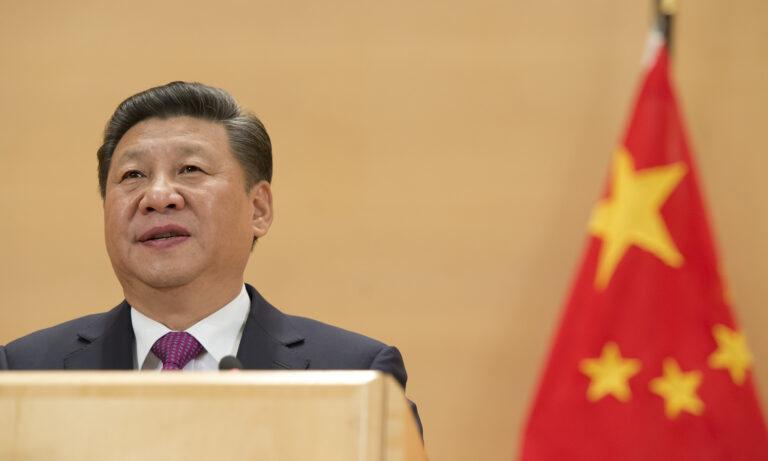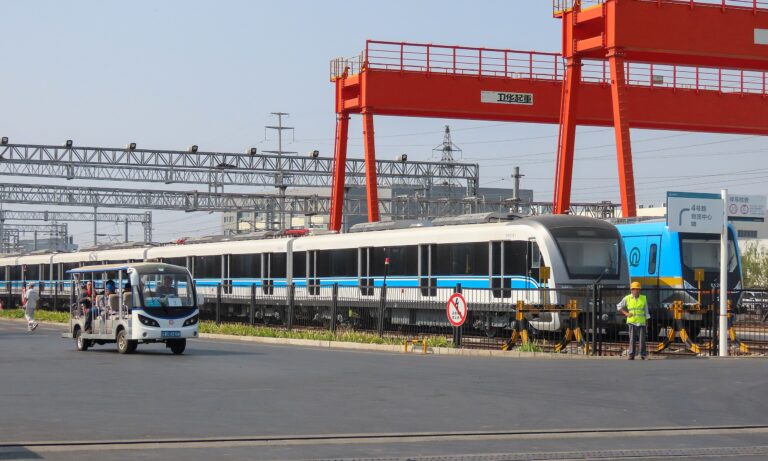
China is not likely to give the EU any meaningful deliverables at a summit meeting in Beijing, and even less likely to address the structural challenges that it presents to Europe. With this limited offer, China cannot expect that the summit will be more than a dialogue for the sake of dialogue.
The European Union has been preparing for the EU-China summit on December 7-8 with one mantra: “limited expectations.” Europe has not given up on engaging China and offering scope for meaningful dialogue. However, long gone is the idea that the hallmark of a successful summit is a long and substantial joint statement. There is no return to 2019 in EU-China relations. It is time for realism, nuance, and complexity on both sides. The COVID-19 pandemic, increased geopolitical competition between the US and China and a growing list of irritants in the bilateral relationship undermine the possibility to agree on substantial outcomes. At the same time, dialogue for the sake of dialogue is maybe not such a bad outcome in the current circumstances.
The EU has always walked into meetings with the Chinese leadership in “good faith” and with a European offer to China, as explained by Commission President von der Leyen on November 16 at the ECFR-MERICS European China Conference. This time, there is no naivety that EU’s structural challenges will be addressed in such a meeting but at least a hope that the EU and China can agree to soften the rough edges of their bilateral relations by addressing their respective irritants and agreeing on some low-hanging fruits. On the eve of the 2024 EU-China Summit, Europe knows where it stands and what it has to offer to China.
China, on the other hand, wants a feel-good moment with Europe in Beijing, with sprinkles and cotillons for the 20th anniversary of the EU-China Comprehensive Strategic Partnership. Beijing would like to see a rectification of the trajectory of EU-China relations ahead of 2024, a year of turbulences and uncertainties in view of a new US administration. China cannot afford to lose Europe. Nonetheless, for Beijing, it is difficult to reconcile the idea of celebration with a friend that says that “systemic rivalry” is spreading across all areas of the relationship, restricts your presence on its territory and launches investigations and sanctions against you.
Still, at this stage, face time with the Chinese President, visa facilitation for a limited number of countries and a surprising lifting of trade barriers imposed on Lithuania are the goodies to shape a good atmosphere. This will not convince the Europeans, because China had clearly more to offer to the US at the meeting of Xi Jinping and Joe Biden in San Francisco. In fact, Europeans are probably not transactional enough for China.
Restoring Trust and Mitigating the Fallout of “De-risking”
China has two wishes for Europe: That the EU and China restore trust and confidence to avoid a continuing downward spiral of bilateral relations, and that the EU’s de-risking strategy does not harm China’s own ambitions. For China, Europe remains an important variable in its relationship to the US.
With economic growth at 4 percent, socio-economic challenges such as unemployment, deflation, and mixed signals by the Chinese government on how to best address this, foreign investments are leaving China and companies need to be reassured. Conflicted messaging on closure and opening is certainly not conducive to a positive and trustworthy business environment. Beijing needs European companies to stay in China and needs to reassure the European stakeholders. We can thus expect the summit to be accompanied by positive messaging aimed at building trust and restoring confidence in the Chinese economy.
In a broader perspective, Europe will also matter in ensuring that China reaches its 2035 strategic goal of becoming a technological leader by attaining self-reliance including in the high-tech sector. This is especially important at a time when the US market is closing. In that sense, China wants to prevent the EU from becoming more protectionist and from weaponizing its trade and economic relations with China. The use of defensive measures related to national security and economic competitiveness, ranging from the investigation on Chinese subsidies for electric vehicles, to the broadening of export controls, to the restricting market share for telecom giants Huawei and ZTE in Europe, or even the enforcement of EU’s Carbon Adjustment Mechanism, have created a sense in China that Europe is limiting its access to the Single Market. According to a recent report of the Chinese Chamber of Commerce to the EU, Chinese company’s operations in Europe are steadily growing but they are calling for the EU market to remain open, predictable and transparent. Messages of concerns and anxiety will be delivered to Europe.
At the same time, the Chinese leadership does not want to acknowledge the correlation between these defense measures and unfair trade practices, lack of reciprocity, a skewed playing field, and the asymmetry in market openness. In short, the Chinese side has no intention to address the structural challenges Europe is facing in its trade and economy issues with China. At this summit, the EU is likely to increase the price to pay for the continuation of such practices by Beijing. Navigating what China perceives as an ambitious industrial policy and Europe sees as foreseeable market distortions due to overcapacity will be the next major challenge for China.
European leaders have repeatedly told their Chinese counterparts that “de-risking is not decoupling” and that Europe is not turning protectionist. While Beijing disagrees with the European approach to de-risking, it has acknowledged that as long as it does not come at the expense of China’s global ambitions, it can live with it. The summit will be the occasion to explain once again that Europe is not turning protectionist but defending itself against unfair practices.
China intends to leverage the EU market, but the question remains of what China has to offer. If Beijing has been unwilling to offer any concessions on structural issues to the US, it will hardly make a different offer to Brussels. Instead, it will try to rebuild trust in the business environment and keep European companies in China by providing limited market access and addressing companies’ concerns over, for example, data localization requirements and cross-border data flows. More than that is not to be expected, but even little gains are still gains.
Trust should also be built through reconnecting with one another. China has been calling on Europe to resume people-to-people exchanges, but conditions were not right. While the number of Europeans in China has been shrinking, and companies have turned their back on the country, it is time to think about how to lure expats back. From barriers for European airlines to visa difficulties or issues of freedom of speech, there are still several irritants hampering the resumption of solid people-to-people exchanges. Even tourism is still lagging, as China only slowly lifts barriers for Europeans to enter the country, and as shown in its new transit visa policy, on a very selective basis.
Controversies Concerning Global Issues
China has long given up on Europe’s willingness to endorse its view of the world as expressed in various global initiatives like the “Belt and Road Initiative” (BRI). The latter will likely not be discussed, and Europe will certainly not give the space to China to discuss the European and international security architecture. However, Beijing has a strong interest in shaping the European reaction to its assertive course on foreign and security issues. At the same time, it will try to manage EU expectations towards Beijing’s involvement in resolving global challenges like climate change and safeguarding peace and stability.
China is aware that Russia’s war of aggression against Ukraine will be tabled at the summit, and the EU will insist on tackling the issue. Beijing has understood that the issue will have a long-term impact on EU-China relations, which is a progress from the 2022 summit. However, President Xi is unlikely to move on this issue, given the declared “no limits” partnership and his special relationship with Putin. Meanwhile, the EU has somehow already lowered its expectations, from wanting China to use its influence over Russia to end the war to pushing China to reduce its economic and political support to its northern neighbor. At the summit, the European leaders should focus on getting China to agree to engagement with Ukraine and dealing with the Chinese companies violating European sanctions.
The situation in the Taiwan Strait is another topic of contention for both sides: It is very likely that Beijing will refuse to talk about cross-strait relations with the Europeans, who are worried about potential escalation in the region in the aftermath of presidential elections in Taiwan and want to push for maintaining the status quo. For China, this heated discussion is reserved for negotiations with the US and Europe has no say in this.
There is more positive engagement as regards cooperation between China and the EU on global challenges. From debt relief, to cooperation on the WTO reform, to climate change – Europe has always seen many areas for cooperation with China in the multilateral framework. However, Beijing has so far fallen short of making decent offers to the EU and translating commitments into concrete actions. This also holds true for the field of climate cooperation, which the EU keeps portraying as having a lot of potential for two sides to work together. Having a statement on climate along the lines of what was presented at the Xi-Biden meeting in California, one with a European twist, may be a way forward. This is especially so as recent historic lessons have taught us that US-China agreements on climate are not sufficient.
Dialogue for the Sake of Dialogue
Altogether, there is a mismatch in the Chinese proposal to the EU ahead of this summit. On the one hand, China has made only limited, if not nonexistent offers to Europe. On the other hand, its representatives across the continent have been intensely lobbying all capitals to make the summit a success by showcasing the 20th anniversary of the EU-China Strategic Partnership. But even if this meeting only yields limited results, the simple fact that there is a dialogue at all in these troubled times is a success in itself. In that sense, strategic communication will be of the essence for Europe.
European leaders may well end up going to Beijing for a feel-good moment with the Chinese leadership that ends with no points scored by the EU beyond a photo-op and a few difficult positions communicated. There are three key messages that need to be passed to the Chinese leadership before the end of the summit:
First, even as the world enters a period of turbulence with upcoming elections both in the US and in Europe, the EU will remain consistent in its policy vis-à-vis China. This means it will continue to work together with the US and offer the space to China for partnering when interests converge.
Second, Europe is concerned by China’s unfair practices, continuous closing of its society, and the economic strategy of boosting manufacturing which will create overcapacities that will harm Europe. If these structural challenges are not addressed, then the EU will protect its market and its citizens by applying defensive instruments and restricting access to the Single Market. The ball is in Beijing’s court to stop this.
Finally, there is a key message to be conveyed by the European leaders: The EU has not given up on China, and it is time for Beijing to realize it.
Written by
Abigaël Vasselier
v_abigaelAbigaël Vasselier is a Director for Policy & European Affairs and Head of Program of the MERICS research team on China’s Foreign Relations. Previously, she worked as Deputy Head of Division for China, Hong Kong, Macao, Taiwan and Mongolia at the European External Action Service (EEAS).


